Six projects promoting social inclusion by helping youth
We are 7.7 billion people on this planet. And yet, it is so easy to feel alone, excluded or opposed to those surrounding us. Finding one’s place in society is not always an easy task, even less when their background involves social deprivation or conflict zones. The 7.7 Billion media operation includes these six initiatives promoting social inclusion among youth. Want to learn more?
Rebuilding peace through young people
Today, the Nigerian Northern region witnesses deadly conflicts within its population. To promote peace and ensure a better development of the country, the Peace Initiative Network NGO has launched three projects involving books, football, and training programmes. 8,000 students have attended classes about peace coordinated by the Peace Club at their school. The second project Peace Through Sports enables young people from different ethnic backgrounds and religions as well as disabled individuals to meet on a football field. Kicking the ball around teaches them tolerance and encourages pacifism. The third initiative, Youth and Women Empowerment, offers training programmes to women from two vulnerable towns for activities such as sewing, repairing phones or even vulcanisation (reinforcing rubber with sulfur). These activities enable them to build their own sustainable microbusiness, thus maintaining peace within their communities. For more details, you can read the full article in The Nation, The Straits Times (both in English) or Le Soir (in French).
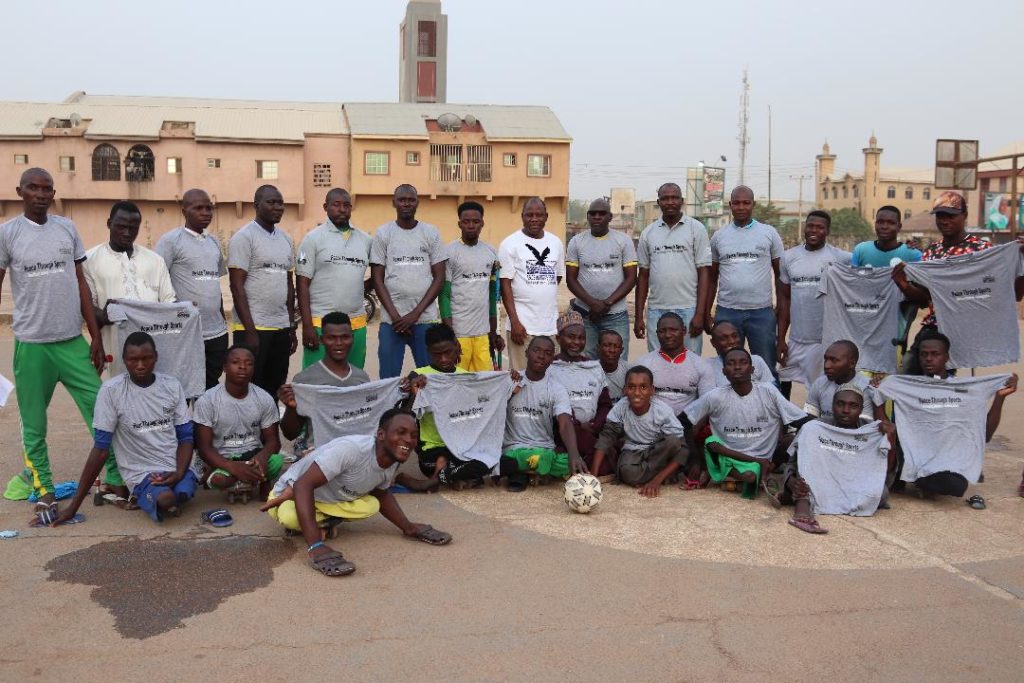
Dancing for a living
Kuhamahama is a project created by young people, for young people. Abdul Kinyenya coordinated the project with the aim of giving one million people the opportunity of making a living while restoring their country’s traditional dances. The company organises workshops all around Uganda, in rural areas mainly. By travelling to villages countrywide, the choreographers incorporate traditional elements of each community into their routine. Through dance, the participants manage to distance themselves from drugs and other social problems. It is a means for them to regain self-confidence. Kuhamahama has already reached more than 25,000 people, of which 60 have in turn created their own dance groups. You can read the article about this project in Yicai Global, The Straits Times, The Daily Monitor (all in English), or in El País (in Spanish).
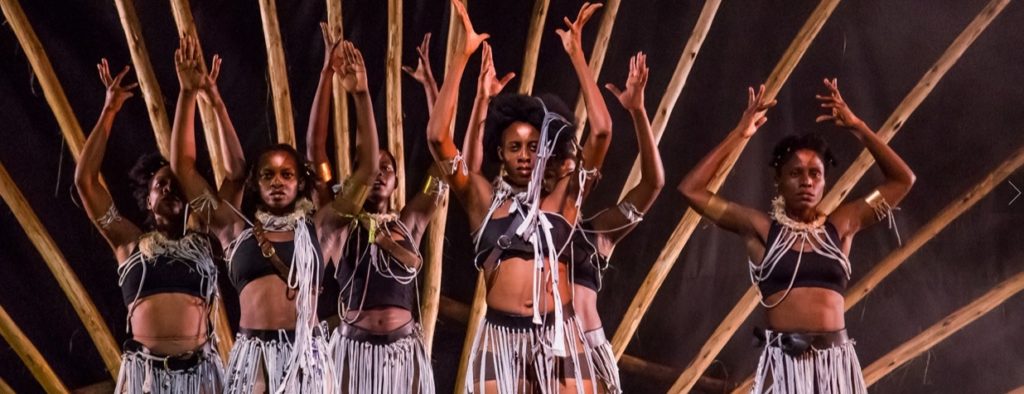
A former criminal spreads hope among disadvantaged youth
Yazid Kherfi is a former robber trying to help youth in disadvantaged suburbs. He travels through France in his camper van and organises evening events, late at night when everything else is closed. With tea and music, he reaches out to young people. Taking his life as an example, he warns them about the consequences of violence and gives them hope for their future. His organisation, Médiation Nomade, has already initiated some changes. These include the decision of several youth centres to delay their closing time until 11 pm. At several municipalities’ request, he also organises meetings with the police and educators to teach them to manage conflicts better. The article about this project is available in Yicai Global, The Nation, and The Straits Times (in English), L’Economiste and Le Soir (in French), La Regione (in Italian) and Almasry Alyoum (in Arabic).

Mentors fulfilling dreams of education
ROYA has two meanings: it is the acronym for the Ressources of Young Afghans charity and means ‘dream’ in the local language. The charity has developed a mentoring program in which wealthy individuals support the education of disadvantaged children in Afghanistan. To benefit from the program, the children need to be living below the poverty line and have to commit to the program until its completion. After their selection, the charity looks for a sponsor for each child. The amount the sponsor pays covers the books, uniforms, tuition, and sometimes transportation. 350 children are currently receiving an education in private schools through the programme. To give the children access to books, ROYA has also built four libraries across the country. Interested in this project? Find the article in The Nation (in English) or Hast e Subh (in Dari).
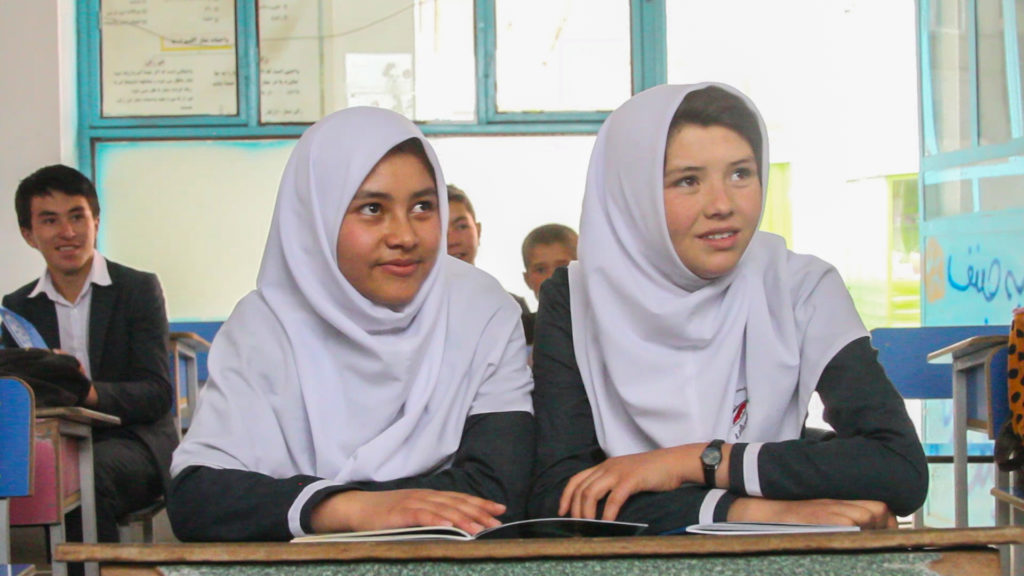
Helping autistic children to connect with society as early as in kindergarden
The OTAF Foundation’s Arcobaleno group is leading a pilot project of intensive early therapy for autistic children in Switzerland. These educational programmes involve speech and occupational therapy, tailored educational methods, behaviour analysis from a very early age and parent training sessions. The Federal Office for Social Insurance considers this therapy a long term investment: by targeting children from a very early age, it hopes for an easier future both for the child and their family. It would enable the participants to grow into independent adults, capable of working and socialising. This long-term goal is today accessible for parents such as Gioele’s mother, whose autistic son’s life was changed after two years of therapy. Today, he is capable of speaking, establishing relationships with the outside world and can even play with other children. Want to learn more about this project? Visit Yicai Global, The Straits Times, and The Daily Monitor (in English), El Tiempo (in Spanish), L’Economiste and Le Soir (in French), or Almasry Alyoum (in Arabic) for the full article.
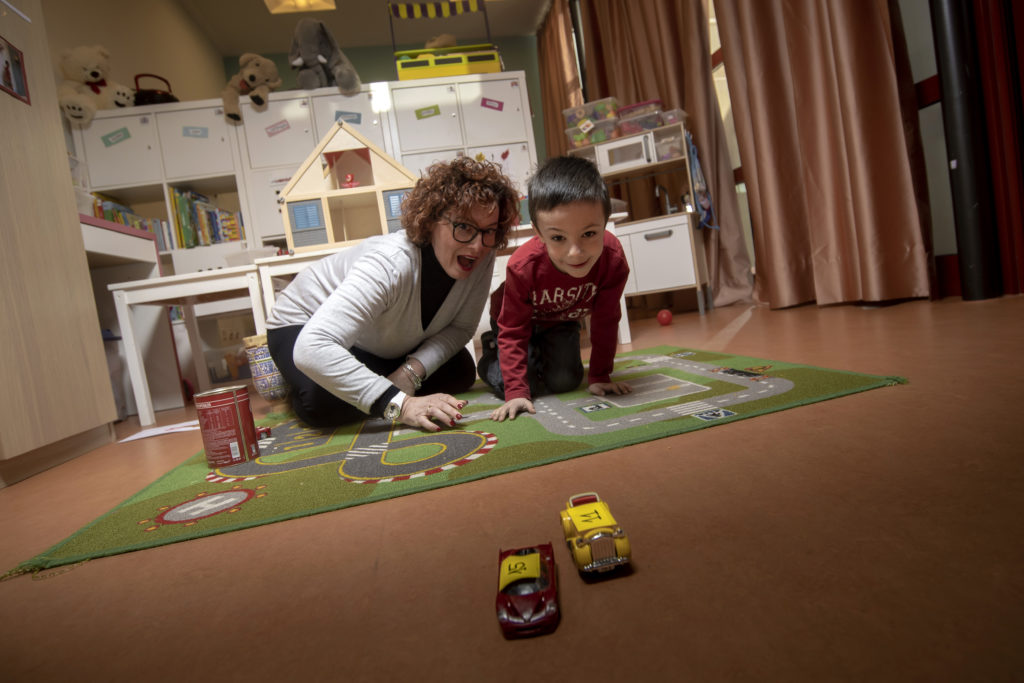
The Argentinian pioneer transgender school
“La Mocha” is a free and inclusive high school in Argentina. It helps individuals who interrupted their education during their childhood work towards their high school diploma in a fast-track programme. Attending the school are inhabitants of nearby urban settlements, children of immigrants and people with diverse gender identities. Transgender people make up 40% of the total number of students. Until recently, the transgender community was still criminalised in Argentina. It remains marginalised, its members having a life expectancy of less than 35 years and limited access to education and decent employment. The school offers its students, aged 16 to 70 years old, the possibility to continue their studies, and finally be able to follow their dreams. If you want to get to know this groundbreaking institution, you can find the article in The Straits Times and The Nation (in English), El Tiempo and El País (in Spanish), L’Economiste, Le Figaro and Le Soir (in French), Hast e Subh (in Dari) and La Regione (in Italian).
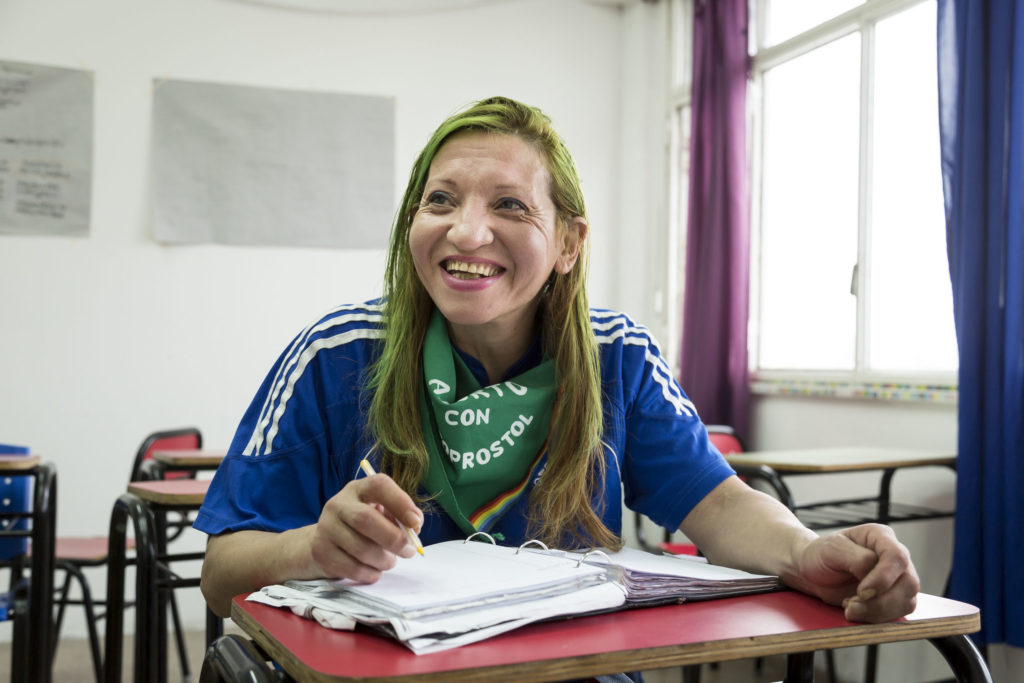
The articles presenting these projects were published as part of 7.7 Billion, an international and collaborative initiative gathering 15 news media outlets from around the world to focus on solutions for social, economic and civic inclusion. The operation is coordinated by Sparknews with the support of Impact Hub and the Schwab Foundation.





